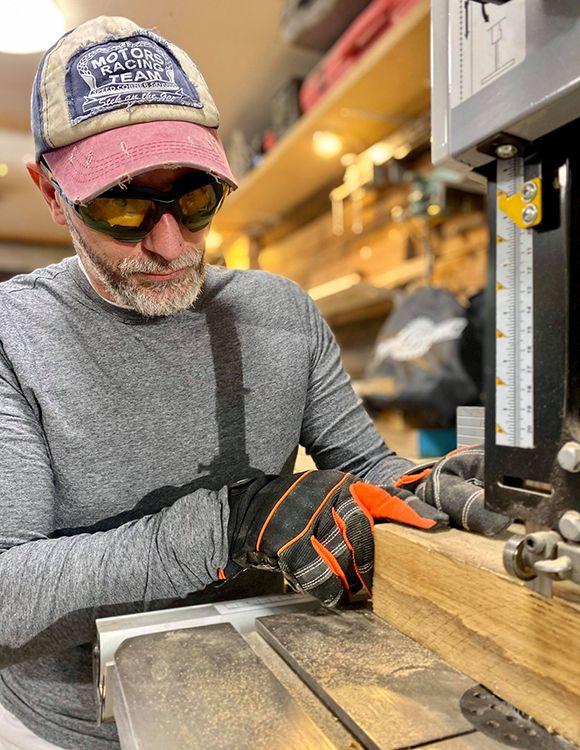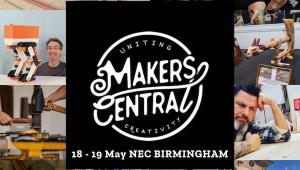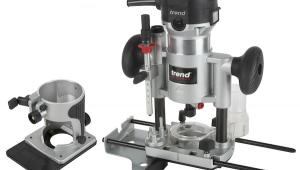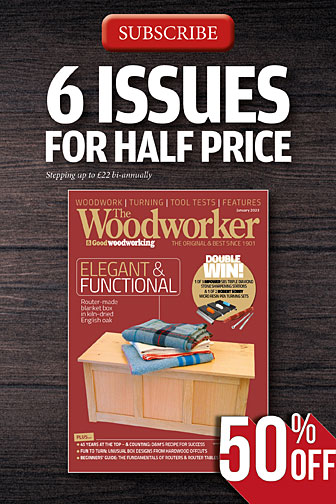ToolFreak’s top tips for woodworking beginners

If you are currently contemplating kickstarting a career in the woodworking industry, we can assure you that you have most certainly come to the right place! Join us, ToolFreak, as we talk to UK-based Woodworking wonder, Andrew Walker, who delves into great detail explaining his top tips and tricks for starting a successful career in this creative industry.
Deciding what career path to embark on can often be a stressful task and you may be filled with a number of questions, along with self doubt. If you're feeling this way and find it a taxing task overcoming these initial hurdles, we would highly recommend you take the first step in the right direction by reading this informative and insightful post, which strives to answer a number of questions you may have, including ‘where to begin?...'

For this particular post, we have teamed up with Andrew Walker, a woodworking professional, who has worked extremely hard to secure a successful self-employed career creating bespoke wood commissions. From a young age, Andrew has been fond of all things creative and found himself juggling a variety of passions from woodworking, to hairdressing, to mountaineering. Today, Andrew has managed to combine his love for creativity and exploration, which is most certainly reflected in the sheer quality of his work.
The talented woodworker found inspiration in Alan Bearsby, his father’s friend and his very own woodworking mentor, as he explains: “Alan was a very talented carpenter who taught me everything I needed to know." From fitting kitchens and staircases to creating bespoke, quirky dining room tables, Andrew certainly has a wealth of knowledge and experience within this industry, so you can be sure of placing your trust in his top tips.
 Andrew’s top tips for starting out in the woodworking industry:
Andrew’s top tips for starting out in the woodworking industry:
1. “Find someone to shadow - seriously this is my greatest piece of advice. I believe I am where I am today because I had an incredible mentor who showed me the ropes. So many people would be happy to take someone on board, because at the end of the day, you really will be giving them a helping hand. Shadowing someone will help you gain so much insight into the industry, as you can constantly ask questions and learn from them. They will give you small tasks to complete, like sanding edges down and organising their toolbox, which again, will be of great benefit to you as you'll be able to get a greater idea and understanding of the tools used and the basic skills required.”
2. “Find out what woodwork appeals most to you: do you like the idea of kitchen fitting, or perhaps fine and extremely detailed woodwork that includes the use of hand tools, such as chisels? I remember finding Alan’s creations so fascinating: he would carve into table tops and make detailed, custom pieces. Knowing what specific aspect of woodwork you like will be extremely helpful in finding the right mentor and right path to follow. Be sure to ask yourself what it is you love early on in your career, as this could really help you. However, don’t feel pressured to narrow things down - you can always keep an open mind and your passion will soon show its face.”

3. “Buy beginners tools. To begin with, you really don’t need to stress about having the most expensive and highly sought-out equipment. I would actually recommend paying your local charity shop, antique shop and car boot sale a visit. You may be able to get your hands on some second-hand tools that could be really useful. Initially, I would recommend buying the following: a wood plane, tape measure, combination square, circular saw and some abrasives, plus a pencil - you’re always going to need one of these at the ready. I would also suggest sourcing cheap wood - pieces such as old pallets can be inexpensive and easy to get your hands on.”
4. “Now this may sound cliché, but practice really does make perfect. Making mistakes, especially early on in your career, is inevitable. It is so important, however, that you learn from these mistakes, as this way you'll be able to grow and constantly improve, which is something I am still doing today… Everyday is a lesson. Also, be adventurous with your designs and creations. I think growth is so important and I constantly go out of my comfort zone and create weird and wonderful creations. I would highly advise you doing the same thing - you never know what incredible piece you may create.”

5. “Please take your safety seriously! I once had an extremely large splinter go right through my finger and this was certainly a painful experience that I have definitely learnt from. Please be sure to get clued up on all the safety requirements and regulations in your workspace and invest in all the correct safety equipment, from gloves, to safety glasses, to hard hats if required! Never underestimate the power of high quality safety equipment.”
If you'd like to take a look at some of Andrew’s creations, visit his Instagram where he constantly uploads photos of his latest commissions, Alternatively, find more information on his website.
 More from ToolFreak
More from ToolFreak
If you've enjoyed reading this piece and feel fuelled with the knowledge and inspiration to kickstart a woodworking career, please do leave a comment below. If you have any questions, please don’t hesitate to get in touch with the ToolFreak team today – we'd love to hear from you and help wherever we can.
To have a look at more blog posts like this one, click here for new and exciting content on a number of topics, ranging from woodworking to the importance of safety eyewear.
- Log in or register to post comments










